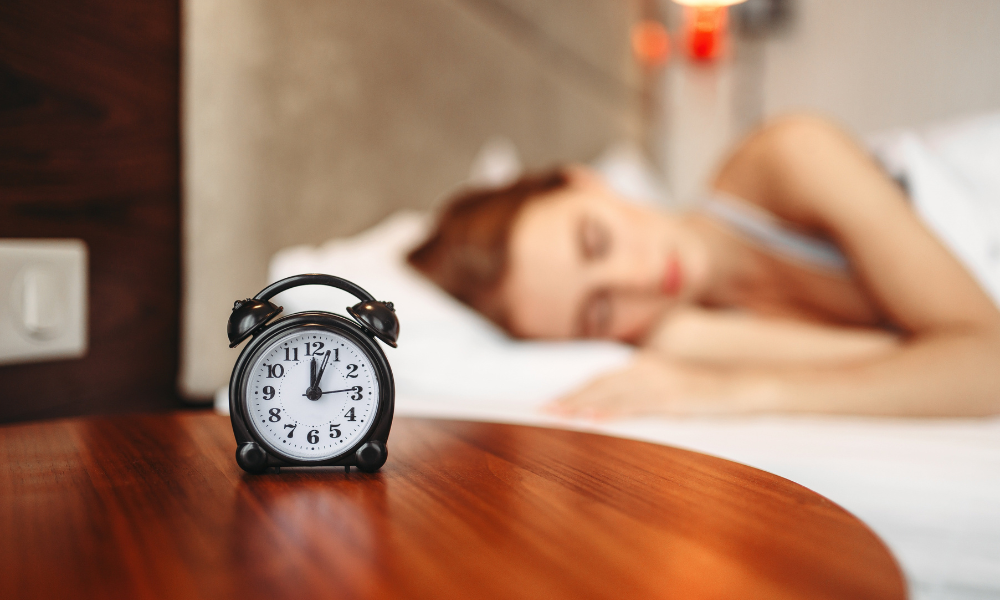How To Sleep Faster! Our Ultimate Sleeping Guide

Do you find yourself tossing and turning in bed, unable to fall asleep quickly?
You're not alone! Many people struggle with falling asleep fast and getting the rest they need.
In this article, we'll explore 15 effective strategies to help you sleep faster and wake up feeling refreshed.
Sleep is essential for overall well-being, and falling asleep quickly can greatly improve your quality of life.
Whether you're dealing with stress, anxiety, or simply a racing mind, these practical tips can help you drift off into a peaceful slumber more efficiently.
Create a Relaxing Bedtime Routine
Start winding down by establishing a calming bedtime routine.
Engage in activities like reading, gentle stretching, or taking a warm bath.
This signals to your body that it's time to relax and prepare for sleep.
Optimize Your Sleep Environment
Make your bedroom a sleep-friendly haven.
Keep the room dark, quiet, and at a comfortable temperature.
Invest in blackout curtains, comfortable bedding, and a supportive mattress.
Watch Your Diet and Hydration
Avoid heavy meals close to bedtime.
Opt for light snacks if you're hungry.
Also, limit your fluid intake in the evening to prevent frequent trips to the bathroom during the night.
Incorporate Physical Activity
Regular physical activity can improve sleep quality.
Aim for exercise earlier in the day, as working out too close to bedtime might leave you too energized to sleep.
Manage Stress and Anxiety
Stress and anxiety can keep you awake at night.
Practice relaxation techniques such as deep breathing, meditation, or progressive muscle relaxation to calm your mind.
Limit Screen Time Before Bed
The blue light emitted by screens can interfere with your sleep-wake cycle.
Avoid screens at least an hour before bed, and consider reading a book or practicing gentle stretches instead.
Establish a Consistent Sleep Schedule
Try to go to bed and wake up at the same time every day, even on weekends.
Consistency helps regulate your body's internal clock and makes falling asleep faster easier.
Try Relaxation Techniques
Explore relaxation methods like mindfulness meditation, gentle yoga, or listening to soothing music.
These techniques can help quiet your mind and prepare you for sleep.
Consider Aromatherapy
Certain scents, like lavender and chamomile, are known for their calming effects.
Use essential oils or a diffuser to fill your bedroom with these soothing aromas.
Use White Noise or Calming Sounds
Background noise can drown out disruptive sounds and create a more peaceful environment.
Consider using white noise machines or calming sound apps to help you relax.
Invest in a Comfortable Mattress and Pillows
The right sleep surface can make a world of difference.
Choose a mattress and pillows that provide proper support and comfort, allowing you to relax and fall asleep faster.
Avoid Caffeine and Nicotine Before Bed
Caffeine and nicotine are stimulants that can keep you awake.
Avoid consuming them several hours before bedtime to give your body ample time to wind down.
Darken Your Bedroom
A dark room promotes better sleep.
Use blackout curtains to block out external light sources and create a conducive environment for falling asleep.
When to Seek Professional Help
If you've tried various strategies and still struggle with falling asleep, it might be time to consult a sleep specialist.
They can help identify underlying issues and provide personalized solutions.
Conclusion
Getting a good night's sleep is essential for your overall health and well-being.
By incorporating these tips into your routine, you can improve your sleep quality and wake up feeling refreshed and rejuvenated.
FAQs
Can certain foods help me sleep faster?
- While specific foods can promote sleep, it's best to avoid heavy meals close to bedtime. Opt for light, sleep-friendly snacks if needed.
Is it okay to exercise close to bedtime?
- Exercising earlier in the day is generally more effective for sleep. Vigorous exercise too close to bedtime might make it harder to fall asleep quickly.
What relaxation techniques can I try?
- Relaxation techniques such as deep breathing, meditation, and progressive muscle relaxation can help calm your mind before sleep.
How does screen time affect sleep?
- The blue light from screens can disrupt your sleep-wake cycle. Avoid screens before bed and opt for calming activities instead.
What role does a consistent sleep schedule play in falling asleep faster?
- A consistent sleep schedule helps regulate your body's internal clock, making it easier to fall asleep and wake up at desired times.
